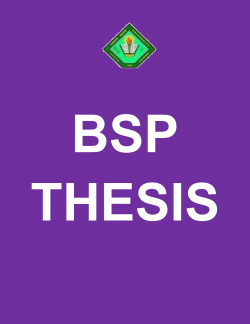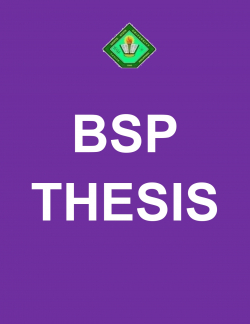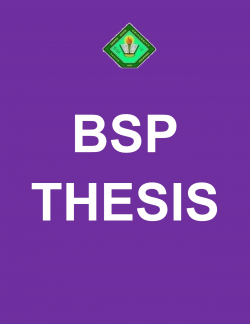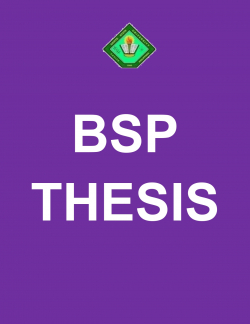“Na Sa Isip Mo Lang ‘Yan!”: Lived Experiences of People with Perceived Mental Health Struggles in A Family with Mental Health Stigma.

Type
Thesis
Authors
Category
Thesis-BSP
[ Browse Items ]
Publication Year
2024
Pages
xviii, 326p.
Subject
Mental illness and family. Mental health—Cultural aspects—Philippines. Stigma (Social psychology). Coping behavior. Mental health—Adolescents and young adults.
Abstract
“Na Sa Isip Mo Lang ‘Yan!” (It’s all in your mind!), a common Filipino phrase
often heard when the subject of the conversation concerns mental health and mental
health struggles. This phrase is known to have a negative connotation of invalidating
a person’s feelings, emotions, and state of mental health; it is associated with what we
call ‘mental health stigma’. The Healthline Editorial Team (2023), defined mental health
stigma as the prejudice that might be shown against those with mental health
disorders. Mental health stigma is a significant and deeply entrenched issue that
continues to cast a shadow over people who have experienced mental health
struggles. It creates an environment where people suffering from mental health
struggles often feel marginalized, silenced, and reluctant to seek the help they need.
The study aimed to gain an in-depth understanding of the perceived
experiences of people with perceived mental health struggles in a family with mental
health stigma, to delve into the participants' understanding of mental health struggles
and perception of mental health stigma, to explore how mental health stigma in the
family affects people with perceived mental health struggles, and to determine the
participants' coping mechanisms towards received stigmatization from family members
and their own perceived mental health struggles.
They used qualitative phenomenological research design. It is the appropriate
method to use for qualitative research at will look into and concentrate on the essence
of the lived experiences of individuals with perceived mental health struggles in a
family with mental health stigma. The researchers employed the purposive sampling
technique. The collection of data is conducted through semi-structured face-to-face
interviews using a validated interview questionnaire at a convenient time for the
participants. The target participants for the study are eight (8) individuals, who have
perceived mental health struggles, experiencing mental health stigma within their
family, and currently living in Luzon The researchers used thematic analysis for each
story that has been gathered.
For the results of the study, thirteen common themes arise from the gathered
data. These themes are: (1) Perception of Mental Health Stigma, (2) Understanding of
Mental Health Struggle, (3) Fallacies about Mental Health Struggles, (4) Empathetic
Responses to Mental Health Struggles, (5) Effects of Mental Health Struggles on
Social Interactions and Relationships, (6) Experiences of Individuals Facing Mental
Health Stigma Within their Families, (7) Perceptions Towards Mental Health, (8) Roots
of Mental Health Stigma, (9) Forms of Harmful Stigma and Responses on Mental
Health Within the Family, (10) Effects of Negative Remarks, (11) Impact on Personal
Growth and Relationships, (12) Feelings towards Having Shared Ones Mental Health
Struggles, and (13) Coping Mechanism.
often heard when the subject of the conversation concerns mental health and mental
health struggles. This phrase is known to have a negative connotation of invalidating
a person’s feelings, emotions, and state of mental health; it is associated with what we
call ‘mental health stigma’. The Healthline Editorial Team (2023), defined mental health
stigma as the prejudice that might be shown against those with mental health
disorders. Mental health stigma is a significant and deeply entrenched issue that
continues to cast a shadow over people who have experienced mental health
struggles. It creates an environment where people suffering from mental health
struggles often feel marginalized, silenced, and reluctant to seek the help they need.
The study aimed to gain an in-depth understanding of the perceived
experiences of people with perceived mental health struggles in a family with mental
health stigma, to delve into the participants' understanding of mental health struggles
and perception of mental health stigma, to explore how mental health stigma in the
family affects people with perceived mental health struggles, and to determine the
participants' coping mechanisms towards received stigmatization from family members
and their own perceived mental health struggles.
They used qualitative phenomenological research design. It is the appropriate
method to use for qualitative research at will look into and concentrate on the essence
of the lived experiences of individuals with perceived mental health struggles in a
family with mental health stigma. The researchers employed the purposive sampling
technique. The collection of data is conducted through semi-structured face-to-face
interviews using a validated interview questionnaire at a convenient time for the
participants. The target participants for the study are eight (8) individuals, who have
perceived mental health struggles, experiencing mental health stigma within their
family, and currently living in Luzon The researchers used thematic analysis for each
story that has been gathered.
For the results of the study, thirteen common themes arise from the gathered
data. These themes are: (1) Perception of Mental Health Stigma, (2) Understanding of
Mental Health Struggle, (3) Fallacies about Mental Health Struggles, (4) Empathetic
Responses to Mental Health Struggles, (5) Effects of Mental Health Struggles on
Social Interactions and Relationships, (6) Experiences of Individuals Facing Mental
Health Stigma Within their Families, (7) Perceptions Towards Mental Health, (8) Roots
of Mental Health Stigma, (9) Forms of Harmful Stigma and Responses on Mental
Health Within the Family, (10) Effects of Negative Remarks, (11) Impact on Personal
Growth and Relationships, (12) Feelings towards Having Shared Ones Mental Health
Struggles, and (13) Coping Mechanism.
Description
This undergraduate thesis explores the lived experiences of individuals with perceived mental health struggles within families that perpetuate mental health stigma. Utilizing a qualitative phenomenological research design, the study gathered insights from eight participants residing in Luzon who have encountered stigmatization from family members. Through semi-structured interviews and thematic analysis, thirteen significant themes emerged, including perceptions and understanding of mental health, fallacies surrounding mental illness, stigma's roots and forms, its social and personal impacts, and various coping mechanisms. The study reveals how familial stigma deepens emotional distress and highlights the need for increased mental health literacy and empathy in Filipino households.
Biblio Notes
Azur, B., Bayutas, S. A. V. C., Cacido, R., De Guzman, A. N., Pacis, A. D., Ramos, E. C., & Tenepere, K. B. (2024). "Na sa isip mo lang 'yan!": Lived experiences of people with perceived mental health struggles in a family with mental health stigma (Undergraduate thesis). Cavite State University – Bacoor City Campus, City of Bacoor, Cavite. Adviser: Rome Ace N. Rodriguez.
Number of Copies
1
| Library | Accession No | Call No | Copy No | Edition | Location | Availability |
|---|---|---|---|---|---|---|
| CvSU Bacoor City Campus | 5000061 | 1 | Yes |




